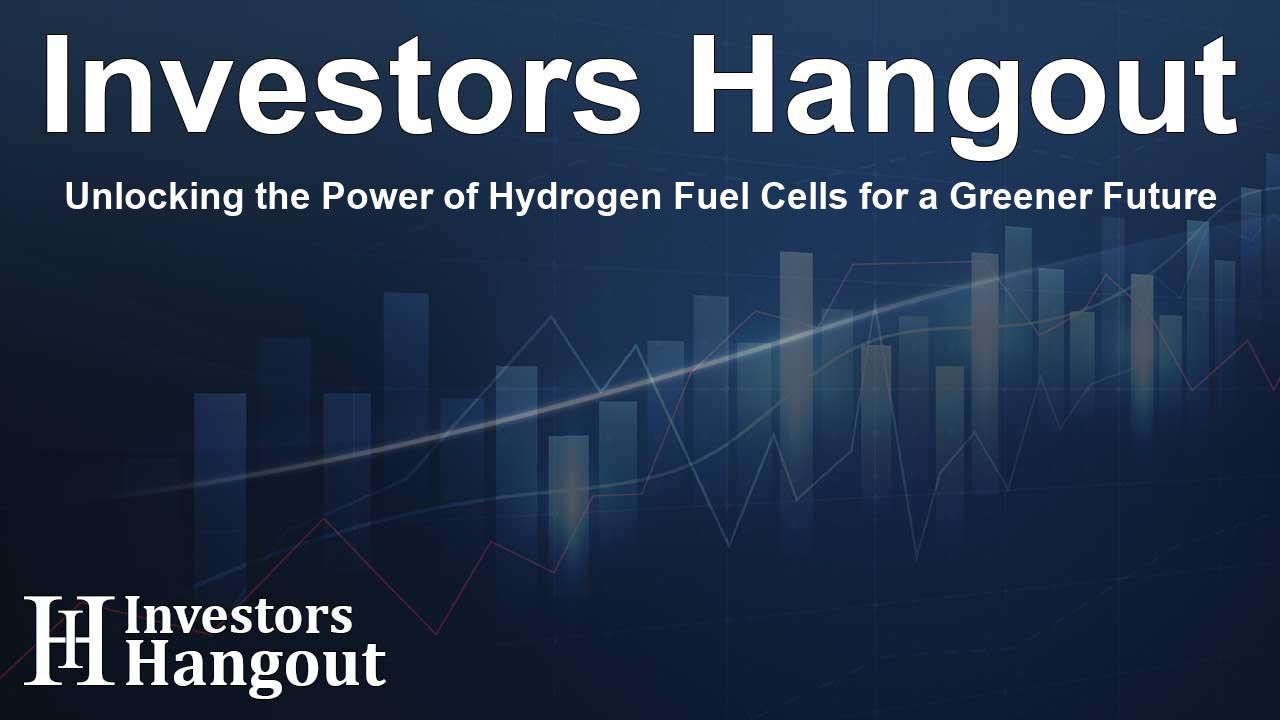Unlocking the Power of Hydrogen Fuel Cells for a Greener Future

The Rise of Hydrogen Fuel Cells in Global Energy Transformation
"Harnessing Hydrogen: Fuel Cells and Electrolyzers Leading the Charge Towards Global Decarbonization. Empowering Industries to Achieve Carbon Neutrality with Green Energy Solutions."
Recent studies indicate that the market for hydrogen fuel cells is poised for significant growth. Projections suggest that this market, estimated at $5.1 billion, could nearly double by the end of 2029. With an annual growth rate of 16.5%, hydrogen fuel cells are emerging as a pivotal technology in the race towards a more sustainable energy future.
This market encompasses a variety of applications, including stationary systems for power generation, portable units, and mobile propulsion systems. These systems are not only innovative but also crucial in mitigating the adverse effects of climate change and reducing greenhouse gas emissions.
Understanding Hydrogen Fuel Cells
Hydrogen fuel cells operate by converting hydrogen and oxygen into electricity, producing only water and heat as by-products. This emission-free energy creation is vital in the global strategy to reduce carbon footprints and combat climate changes.
The efficiency of hydrogen fuel cells is significantly higher than traditional combustion engine technologies. These cells excel at capturing waste heat and utilizing it through combined heat and power (CHP) systems, further enhancing overall energy efficiency.
Drivers of Market Growth
The global hydrogen fuel cell market is driven by several factors:
- Increasing Demand for FCEVs: The demand for fuel cell electric vehicles (FCEVs) is strengthening as consumers and stakeholders recognize their advantages over battery electric vehicles. FCEVs offer extended ranges and rapid refueling options.
- Investments in Infrastructure: There has been a notable increase in investments from both the public and private sectors in hydrogen infrastructure. Government incentives and carbon credits are incentivizing the adoption of fuel cell technologies.
- Clean Maritime Solutions: With rising environmental regulations, the maritime industry is exploring hydrogen fuel cells as a viable alternative to fossil fuels, reducing emissions from ships and ensuring compliance with emerging standards.
- The Role of Green Hydrogen: Produced from renewable sources, green hydrogen is crucial in the hydrogen economy, providing a sustainable fuel option that lessens reliance on fossil fuels.
Market Insights
The hydrogen fuel cell market is categorized into several segments, including technology, application, and product types. Various entities are contributing to the growth and diversification of this market:
- Fuel Cell Vehicle Market: The increasing sales of fuel cell vehicles contribute significantly to the market's performance, indicating a shift towards low-emission transport solutions.
- Hydrogen Technology Investments: Significant investments aimed at developing hydrogen production, storage, and distribution technologies are expected to facilitate market expansion.
- Environmental Factors: An escalating concern about greenhouse gas emissions is shaping the landscape for hydrogen fuel cell applications, especially in transportation and industrial usage.
A Look Ahead: Market Positioning
Predictions suggest that the market for hydrogen fuel cells will not only expand in monetary value but also in technology adoption and regional availability. Key markets are likely to be concentrated in regions actively developing hydrogen infrastructure, such as Asia-Pacific, which is currently leading in market share due to expansions in Japan and South Korea.
Frequently Asked Questions
What is driving the growth of hydrogen fuel cells?
The growth is primarily fueled by the rising demand for sustainable energy solutions, investments in infrastructure, and the need to reduce greenhouse gas emissions.
How do hydrogen fuel cells generate energy?
Hydrogen fuel cells create energy through the reaction of hydrogen with oxygen, producing electricity, water, and heat, making it a clean and efficient energy source.
What sectors are exploring hydrogen fuel cell technology?
Key sectors include transportation, particularly for fuel cell electric vehicles, and industrial applications where energy efficiency and emissions reduction are critical factors.
Can hydrogen fuel cells aid in achieving carbon neutrality?
Yes, hydrogen fuel cells play a significant role in decarbonizing energy and transportation sectors, enabling industries to move towards carbon-neutral operations.
Which regions are leading the hydrogen fuel cell market?
Regions such as Asia-Pacific are dominating due to robust infrastructure developments, particularly in countries like Japan and South Korea, driving the market forward.
About The Author
Contact Dominic Sanders privately here. Or send an email with ATTN: Dominic Sanders as the subject to contact@investorshangout.com.
About Investors Hangout
Investors Hangout is a leading online stock forum for financial discussion and learning, offering a wide range of free tools and resources. It draws in traders of all levels, who exchange market knowledge, investigate trading tactics, and keep an eye on industry developments in real time. Featuring financial articles, stock message boards, quotes, charts, company profiles, and live news updates. Through cooperative learning and a wealth of informational resources, it helps users from novices creating their first portfolios to experts honing their techniques. Join Investors Hangout today: https://investorshangout.com/
The content of this article is based on factual, publicly available information and does not represent legal, financial, or investment advice. Investors Hangout does not offer financial advice, and the author is not a licensed financial advisor. Consult a qualified advisor before making any financial or investment decisions based on this article. This article should not be considered advice to purchase, sell, or hold any securities or other investments. If any of the material provided here is inaccurate, please contact us for corrections.
